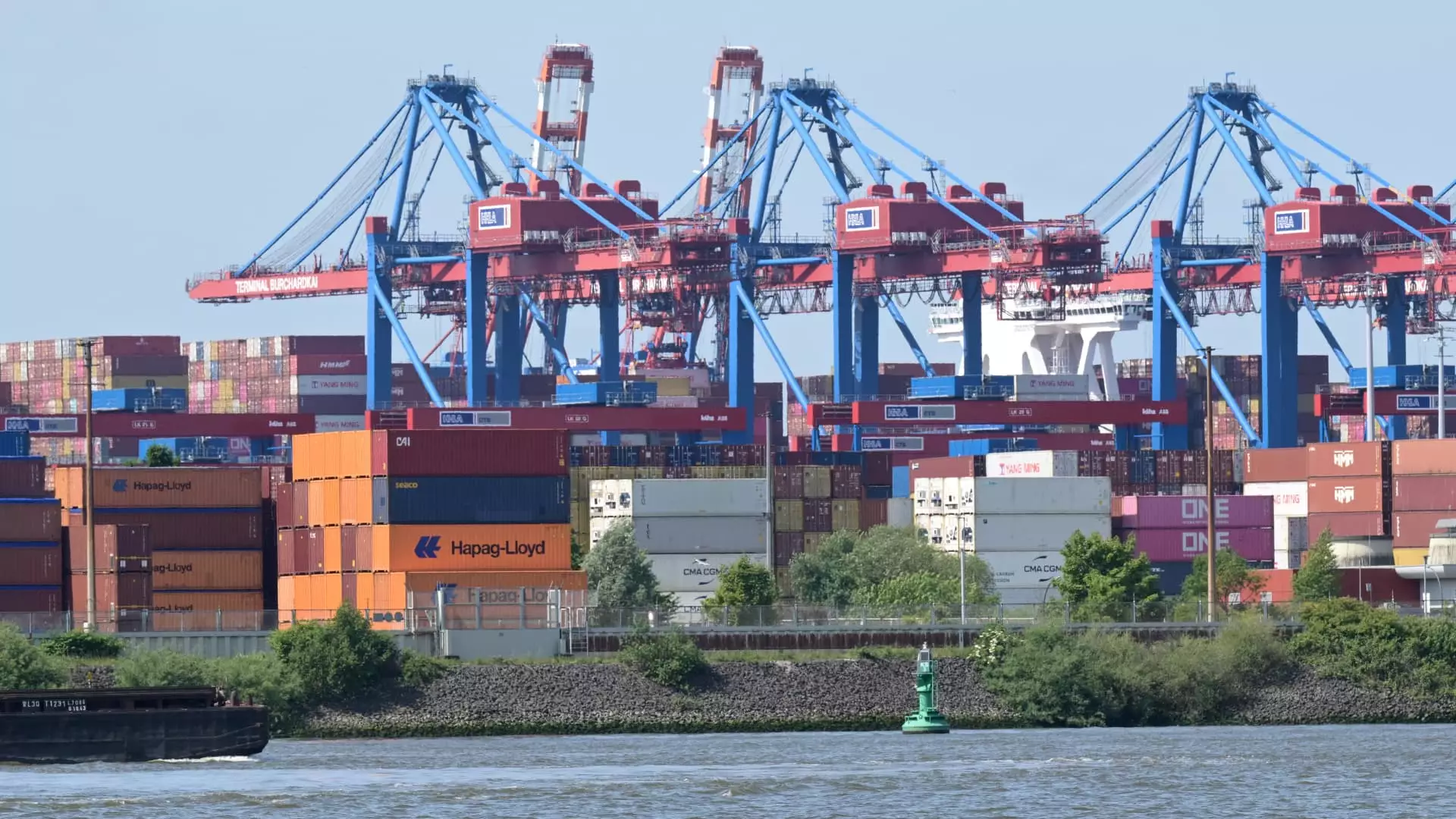The current state of U.S.-EU trade negotiations reveals a relationship fatally strained by mutual distrust and conflicting interests. While traditionally regarded as allies, the two economically dominant entities are teetering on the edge of a dangerous confrontation. This instability threatens not only economic stability but also the geopolitical cohesion that has historically underpinned transatlantic relations. In many ways, the inability to reach a comprehensive agreement signals a deeper erosion of trust, where economic tensions are symptomatic of broader geopolitical discord.
The looming threat of tariffs exceeding 50% on vital exports exposes a fragile diplomatic landscape. Washington’s willingness to escalate tariffs—effectively weaponizing economic coercion—demonstrates a lapse into protectionist hostility. Conversely, the EU’s prepared retaliatory measures, though temporarily held in reserve, showcase a readiness to escalate tensions. Such mutual brinkmanship risks spiraling into a trade war that would devastate global markets and destabilize global supply chains. These measures aren’t just about economics—they expose fundamental flaws in the alliance’s cohesion and shared vision for the future.
The Economic Consequences of a Failed Agreement
The scale of transatlantic trade is staggering—accounting for nearly a third of global commerce. Yet, this interconnectedness is precisely what makes the potential breakdown so perilous. The European Union’s sizeable trade surplus in goods and its dependence on continued access to U.S. markets create a delicate balance that could easily be shattered if negotiations collapse. Meanwhile, the U.S. risks losing significant manufacturing relationships, especially in critical sectors like pharmaceuticals, automotive, and energy.
What’s most troubling about this situation is how it underscores a broader disregard for collaborative problem-solving. Instead of pursuing nuanced agreements that reflect mutual benefit, both sides appear trapped in zero-sum mentality, where economic gains are viewed as a contest rather than a shared enterprise. Such a mindset feeds into populist narratives that paint the EU as an unfair partner and distract from the real, systemic issues Japan, China, and other nations exploit—namely, unfair trade advantages and regulatory asymmetries. An escalation now would diminish American and European influence, paradoxically empowering less responsible global actors.
The Political Will That’s Now MIA
European leaders, including Ursula von der Leyen and Maros Sefcovic, acknowledge the difficulty of finalizing a comprehensive deal within the current political window. Their comments reveal an understanding that, beyond the short-term negotiations, there’s an overarching lack of political resolve. The concept of an “agreement in principle” without detailed content exposes an uncomfortable truth: the current climate isn’t conducive to sustained, meaningful compromise.
Meanwhile, U.S. officials exhibit a notable reluctance to commit strongly, paralyzed by internal divisions and the broader polarization that hampers strategic policymaking. The hesitance exemplified by Treasury Secretary Scott Bessent suggests a long-term outlook shrouded in uncertainty—no longer is this merely about tariffs and quotas; it’s about the future of the transatlantic partnership itself. In this climate, the path toward a durable deal seems less a strategic choice and more a matter of pragmatic necessity—if only the political will existed to pursue it.
The Irony of Short-Term Strategy Amid Long-Term Risks
The current negotiations are a microcosm of a broader disconnect between short-term political survival and long-term economic security. Leaders on both sides are under immense pressure to appear tough on trade, yet this posture destroys the very foundations of cooperation needed for sustainable growth. The EU’s apparent aim of a lightweight “heads of terms” agreement signals a tacit acknowledgment that a detailed, comprehensive treaty may be impossible under current circumstances—and highlights how political pragmatism is overshadowing strategic foresight.
This shortsightedness neglects that the true cost of a breakdown extends beyond immediate tariffs. It threatens to unravel decades of diplomatic and economic integration, fostering fragmentation and fostering distrust among allies. On a fundamental level, this situation calls into question the maturity of U.S. and EU leadership—are they willing to risk damaging their economic alliance for short-lived political wins? The answer seems painfully clear: only if they lack a shared vision for a unified future can they justify risking such disastrous fallout. If these cracks are ignored, they will deepen, and the consequences will be felt far beyond the negotiating table.


Leave a Reply